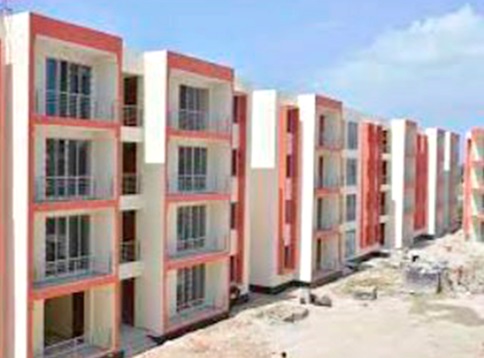
Landlord in Ghanaian parlance: Reflections
Landlord is a household name in Ghana. Though it has some legal connotation due to the elements of contract and transactions inherent in the term, it is more of a street word than a book-long term.
For the average person who patronises the services of landlords, his/her chief concern is to get a place to lay his/her head and not to worry about the term. Some, however, still wonder why such people should be referred to as landlords, since what they offer is just a room or house, not a land in the actual sense.
Accommodation
The moment a city dweller thinks about accommodation, it is a landlord that comes to mind. Because of the scarcity of accommodation in the capital, many Ghanaians, particularly those living and working in Accra, regard landlords as key providers of one of their basic and essential needs ‒ rooming and housing.
Ghana has a big challenge when it comes to the provision of housing for its growing population. The challenge is more acute in the cities, in relation to accessibility and affordability.
On the major roads in Accra, giant billboards often taunt motorists and pedestrians with displays of beautiful elegant luxurious houses. The price tag on these advertised apartments is intimidating enough, especially for workers, who are forced to see them anytime they drive by.
Although these luxury apartments are springing up in almost every corner of the city, their accessibility and affordability go way beyond the pocket of the ordinary Ghanaian worker. most of whom take less than GH¢3000 as monthly salary.
Affordable Housing Schemes (AHS)
The government’s attempt to address this chronic challenge of housing in the country has been slow. Currently, the housing deficit in the country stands at two million units as of 2022.
This means the country needs 200,000 units of houses annually over the next 10 years to address this shortfall. The government's effort has seen only nine affordable housing projects in different parts of the country. All of these projects are at various stages of completion as of 2023.
These include the Asokore Mampong and Borteyman Affordable Housing Projects (AHP), which, however, have been completed. Those that are yet to be completed are the Community 26 Kpone, Shai Hills, Gbetseli, the recent 8000 unit Pokuase and the Segblemi AHP.
Adding to the efforts of the government are private ones such as the Aappolonia Bijou Homes project and the Adom City Phases.
Power
Being a landlord in the city of Accra comes with prestige, some level of power, and financial advantage. Many people in Accra build houses for that purpose. Indigenes sometimes also forgo the comfort of sleeping in their own rooms and opt to sleep outside in the open to earn them the title of a landlord and also get some money by renting their sleeping space to others.
Conflict
Landlords jealously guard this power and prestige. Their attempt at this most of the time generates conflicts and confusion between them and their tenants. An average tenant in the city of Accra perceives a landlord to be selfish, inconsiderate and wicked.
Landlords also have their own misgivings about tenants. But invariably it is the challenges that tenants encounter with their landlords that capture public attention. The government can stand in as a good referee when it comes to the landlord-tenant “game” to ensure that conflicts are minimal.
It can achieve this by enforcing rent laws in the country and working towards bringing equilibrium to the housing market. This will ensure fair play and a win-win situation for room seekers and landlords alike.
The writer is with the Institute of Economic Affairs and Diplomacy (ICAD).
E-mail:
